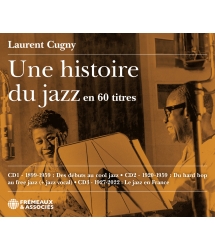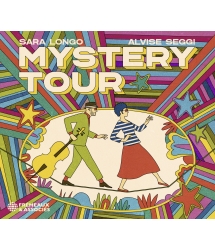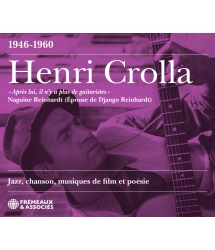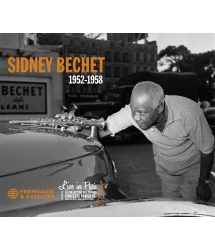- Our Catalog
- Philosophy
- Philosophers of the 20th century and today
- History of Philosophy (PUF)
- Counter-History and Brief Encyclopedia by Michel Onfray
- The philosophical work explained by Luc Ferry
- Ancient thought
- Thinkers of yesterday as seen by the philosophers of today
- Historical philosophical texts interpreted by great actors
- History
- Books (in French)
- Social science
- Historical words
- Audiobooks & Literature
- Our Catalog
- Jazz
- Blues
- Rock - Country - Cajun
- French song
- World music
- Africa
- France
- Québec / Canada
- Hawaï
- West Indies
- Caribbean
- Cuba & Afro-cubain
- Mexico
- South America
- Tango
- Brazil
- Tzigane / Gypsy
- Fado / Portugal
- Flamenco / Spain
- Yiddish / Israel
- China
- Tibet / Nepal
- Asia
- Indian Ocean / Madagascar
- Japan
- Indonesia
- Oceania
- India
- Bangladesh
- USSR / Communist songs
- World music / Miscellaneous
- Classical music
- Composers - Movie Soundtracks
- Sounds of nature
- Our Catalog
- Youth
- Philosophy
- News
- How to order ?
- Receive the catalog
- Manifesto
- Dictionnary











- Our Catalog
- Philosophy
- Philosophers of the 20th century and today
- History of Philosophy (PUF)
- Counter-History and Brief Encyclopedia by Michel Onfray
- The philosophical work explained by Luc Ferry
- Ancient thought
- Thinkers of yesterday as seen by the philosophers of today
- Historical philosophical texts interpreted by great actors
- History
- Books (in French)
- Social science
- Historical words
- Audiobooks & Literature
- Our Catalog
- Jazz
- Blues
- Rock - Country - Cajun
- French song
- World music
- Africa
- France
- Québec / Canada
- Hawaï
- West Indies
- Caribbean
- Cuba & Afro-cubain
- Mexico
- South America
- Tango
- Brazil
- Tzigane / Gypsy
- Fado / Portugal
- Flamenco / Spain
- Yiddish / Israel
- China
- Tibet / Nepal
- Asia
- Indian Ocean / Madagascar
- Japan
- Indonesia
- Oceania
- India
- Bangladesh
- USSR / Communist songs
- World music / Miscellaneous
- Classical music
- Composers - Movie Soundtracks
- Sounds of nature
- Our Catalog
- Youth
- Philosophy
- News
- How to order ?
- Receive the catalog
- Manifesto
- Dictionnary
EVAN CHRISTOPHER
Ref.: FA505
Artistic Direction : DAVE KELBIE
Label : Frémeaux & Associés
Total duration of the pack : 50 minutes
Nbre. CD : 1
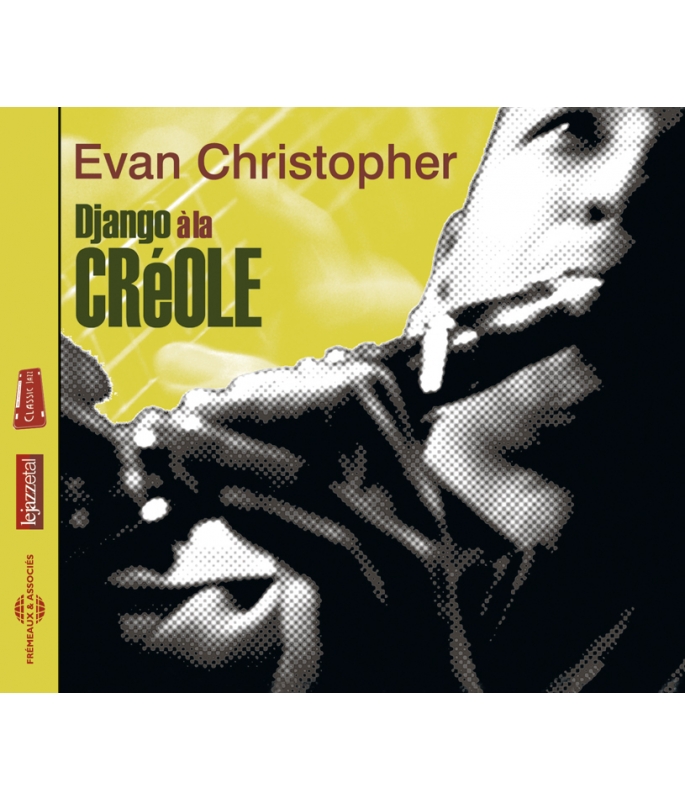
EVAN CHRISTOPHER
EVAN CHRISTOPHER
100 Best Records of 2008 according to The Sunday Times
[Evan] is, in my estimation, not only the greatest jazz clarinetist alive, but one of the greatest of all time Ahmet Ertegun (founding Chairman of Atlantic Records)
A forthright sound and a hungry energy New York Times
“Clarinettist Evan Christopher has been winning awards since the age of 11. His tone is gorgeously light and fluffy and he creates sparkling improvisations, while guitarists Dave Blenkhorn and Dave Kelbie and bassist Sebastien Girardot supply spirited accompaniment. Django Reinhardt's tunes have rarely been more sensitively played, and old warhorses like 'Farewell Blues' sound fresh and new.” Dave Gelly
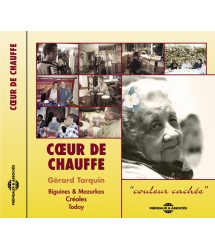
COULEUR CACHEE
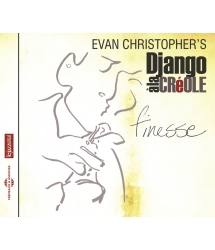
FINESSE
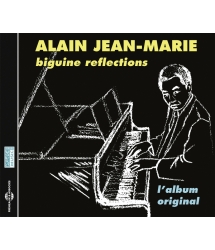
ALAIN JEAN-MARIE
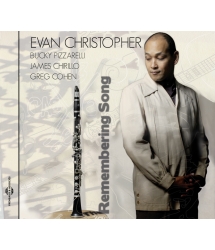
EVAN CHRISTOPHER




Selected products

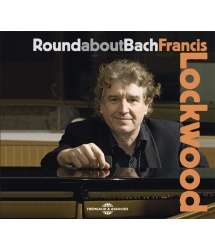
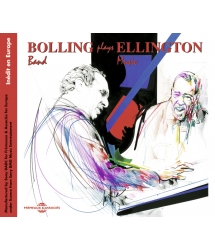
-
PisteTitleMain artistAutorDurationRegistered in
-
1Douce ambianceChristopher Evan00:05:222008
-
2Farewell bluesChristopher Evan00:04:082008
-
3DinetteChristopher Evan00:04:132008
-
4I know that you knowChristopher Evan00:05:242008
-
5Manoir de mes rêvesChristopher Evan00:05:252008
-
6Low CottonChristopher Evan00:05:462008
-
7NuagesChristopher Evan00:03:582008
-
8Mélodie au crépusculeChristopher Evan00:04:542008
-
9InsensiblementChristopher Evan00:05:402008
-
10Tears djangologyChristopher Evan00:05:142008
Evan Christopher
Evan Christopher
Django à la Créole
Fin août 2005, le puissant ouragan Katrina dévaste les insuffisantes digues érigées par les pouvoirs publics et plonge 80 % de la Nouvelle-Orléans sous les eaux. Ayant quasiment tout perdu, je fais partie des quelques 4000 musiciens que cette catastrophe contraint à déménager et à chercher du travail ailleurs. En octobre, je suis contacté par le Consulat de France à la Nouvelle-Orléans, qui me propose une résidence artistique à Paris. A l’initiative d’un programme américain appelé « French-American Cultural Exchange », la Ville de Paris avait ainsi invité plusieurs musiciens Néo-Orléanais à venir en France. Début 2006, avec guère plus que ma clarinette et une valise d’habits pour bagages, j’arrive à la capitale française où j’essaye d’œuvrer à la promotion de la culture musicale néo-orléanaise, par des concerts et masterclasses. J’y forme deux groupes, le « JazzTraditions Project » et « Django à la Créole » dont l’idée était relativement simple : épicer la musique du Hot-Club de France initiée par Django Reinhardt en y incorporant des touches de Jazz Nouvel-Orléans – dans lequel on dénote l’importance du Blues, des rythmes du monde Créole et de l’improvisation collective.
Mes acolytes et moi avons puisé l’inspiration première de ce « Django à la Créole » dans les collaborations du légendaire guitariste avec les musiciens américains et plus particulièrement, avec des clarinettistes de la Nouvelle-Orléans. Dès 1934, Django a joué et enregistré avec Frank « Big Boy » Goodie, clarinettiste créole de la Nouvelle-Orléans qui s’était installé à Paris vers le milieu des années 1920. Mais c’est surtout en 1939, dans une cession de dernière minute (dés)organisée avec Rex Stewart – un sideman de Duke Ellington – le bassiste Billy Taylor et le clarinettiste Barney Bigard que la fusion de la sensibilité New Orleans avec le swing de Django fut particulièrement réussie. A l’écoute des lignes fluides, clairement New Orleans, de Barney Bigard juxtaposées aux envolées virtuoses et anguleuses de Django Reinhardt, on ne peut prendre pour une simple coïncidence le fait que, à peine quelques mois plus tard, lorsque le violoniste Stéphane Grappelli choisit de suivre une autre route, Django engage un clarinettiste, Hubert Rostaing, pour tenir à ses côtés le rôle de soliste au sein du Hot-Club. Le jeu de Rostaing était certes influencé par Benny Goodman et Artie Shaw, mais sur plus d’un enregistrement, son ton chaud et ligneux dans les registres graves, sa flexibilité rythmique et ses contre-chants sur le jeu de Django rappellent clairement des clarinettistes comme Barney Bigard ou Omer Simeon.
Pour démarquer ce « Django à la Créole » de la kyrielle d’hommages à celui qui fut sans doute le plus grand jazzman Européen, nous avons suivi le conseil du maître pianiste de la Nouvelle-Orléans, Jelly-Roll Morton : « For jazz, you’ve got to have that Spanish Tinge » (approx. « Pour sonner jazz, il faut avoir la touche latine » NDLT).
Morton faisait allusion aux rythmes latins, particulièrement à la sensuelle « Habañera » qui a infiltré les musiques populaires de la Nouvelle-Orléans des premiers jours du jazz jusqu’à présent. Prenant à cœur son conseil, nous avons repris le répertoire du Hot-Club et l’avons relevé avec des rythmes de la Nouvelle-Orléans, de Cuba, du Brésil et des Caraïbes. Ainsi « Douce Ambiance », où guitare rythmique et basse travaillent de concert pour créer un lit de syncopes à la Morton sur lequel la mélodie peut s’étirer langoureusement. Avec les morceaux plus swinguant du répertoire, nous avons cherché à réinventer leurs fondations traditionnelles et à rendre ainsi hommage aux premiers grands innovateurs du jazz, comme les « New Orleans Rhythm Kings », à qui on doit le « Farewell Blues » (1923) que Django a enregistré avec Benny Carter. Nous avons fait un cha-cha-cha de « Dinette » où David Blenkhorn évoque les couleurs du « tres » cubain. Pour « I Know That You Know », il ne s’agissait pas seulement de recréer un bœuf de Django avec l’orchestre de Duke Ellington, mais d’imaginer ce que le Hot-Club de France aurait pu faire s’il avait arrangé ce classique tel que Jimmy Noone l’avait enregistré en 1928. La ballade de Django « Manoir de mes rêves », est jouée en Boléro. La gravité de « Low Cotton » (Rex Stewart) est accentuée par un tempo posé, un solo de basse bluesy, et une clarinette jouée en dessous des gammes habituelles, à son registre le plus profond. Pour deux des plus célèbres compositions de Django Reinhardt, « Nuages » et « Mélodie au Crépuscule », nous avons puisé notre inspiration du côté de la Havane et de Rio de Janeiro. C’est doux comme une berceuse créole que nous avons voulu rendre à Paul Misraki son « Insensiblement ». La boucle est bouclée en fin de disque avec deux compositions de Django Reinhardt et Stéphane Grappelli, « Tears » et « Djangologie », que nous avons fusionnées en un rag dédié à Morton et à son « Spanish Tinge ».
C’est cette réinterprétation d’un répertoire au sein d’une tradition que vise « Django à la Créole ». Nous avons tous ancré notre voix dans le pur esprit de la musique New Orleans et laissé parler nos instruments dans la langue qui leur est propre.
Ce dialogue, nous souhaitons le maintenir dans sa contemporanéité en le restituant fidèlement et individuellement, avec humour, émotion et imagination.
Evan CHRISTOPHER
© 2008 LEJAZZETAL – FRÉMEAUX & ASSOCIÉS
Evan Christopher
Evan Christopher est reconnu de par le monde comme l’un des grands ambassadeurs de la musique de la Nouvelle-Orléans. Il dirige actuellement deux groupes : le JazzTraditions Project et Django à la Créole, accompagne fréquemment des groupes tels que le New Orleans Jazz Orchestra, et enseigne à l’Université de la Nouvelle-Orléans. Evan Christopher naît à Long Beach (Californie) et débute son apprentissage musical à onze ans. Le « Louis Armstrong National Jazz Award » lui est décerné alors qu’il est au lycée, et il est l’un des premiers lauréats de la prestigieuse Idyllwild Arts Academy. Evan poursuit ses études à l’« University of Southern California » et obtient son diplôme universitaire avec mention avant de s’installer à la Nouvelle-Orléans. Ayant publié son étude sur la clarinette New Orleans, il décide de poursuivre ses études et s’inscrit en Master de Musicologie à l’Université Tulane. Outre « Django à la Créole », Evan Christopher a fait paraître en 2007 le disque « Delta Bound » (avec Dick Hyman au piano), « Introduction : Live at the Meridien », et s’était fait connaître avec sa série « Clarinet Road ». On l’entend fréquemment aux côté de ses confrères Néo-Orléanais, comme Big Al Carson, Duke Heitger, Narvin Kimball, Uncle Lionel Battiste ou Tom McDermott. Parmi ses mentors, Evan Christopher cite volontiers Marshall Hawkins, Tony Scott, Kenny Davern et George Probert.
Dave Blenkhorn
Dave Blenkhorn, à 35 ans à peine, compte parmi les musiciens les plus appréciés et respectés du Royaume-Uni. Cet Australien originaire de Tamworth s’est fait connaître à Sidney où, dix ans durant, il joue avec les meilleurs Jazzmen locaux – dont James Morrison, Graeme Bell, Bob Barnard et Tom Baker. C’est d’ailleurs avec James Morrison et l’orchestre de la BBC qu’il obtient l’un de ses plus beaux succès au Queen Elizabeth hall. Son duo avec John Etheridge au festival d’Edimbourg a également contribué à sa renommée. On l’a vu dans la plupart des festivals européens et internationaux, notamment aux côtés de musiciens américains tels que Harry Allen, John Allred, Duke Heitger, John Eric Kelso, Lillian Boutte et Leroy Jones.
Dave Kelbie
C’est aux côtés d’une icone hollandaise du monde manouche que Dave Kelbie a forgé sa réputation : accompagnateur et arrangeur de Fapy Lafertin, Dave et son quartet Lejazz tournent en Europe de 1989 à 2003. Entre temps, Dave a fait paraître sur son label deux disques de Fapy, dont le célèbre « Hungaria ». Son projet le plus célèbre est sans doute Szapora, ensemble poly-ethnique et avant-gardiste de neuf musiciens dédié aux musiques balkaniques qui a déjà trois disques à son actif et une renommée internationale. Depuis sa collaboration avec Fapy Lafertin, Dave a côtoyé sur scène des artistes tels que le violoniste Hongrois Roby Lakatos, le clarinettiste Bob Wilber, les guitaristes Angelo Debarre, Bireli Lagrene, Lollo Meier ou John Etheridge. Musicien, producteur, tourneur, Dave Kelbie est reconnu comme l’un des grands promoteurs de la culture manouche au Royaume-Uni - et au-delà !
Sébastien Girardot
S’il vit aujourd’hui à Paris, Sébastien Girardot est né en Australie, à Melbourne plus précisément. Il a douze ans lorsqu’il commence à étudier la contrebasse et, à quatorze ans seulement, joue avec des formations professionnelles. Lorsqu’il quitte l’Australie, à 18 ans, Sébastien a déjà fait partie du « Australian Youth Orchestra » et participé aux principaux festivals de jazz du pays, comme le Festival international de Melbourne, ou ceux de Manly, Threbo et Wangaratta (avec le Tom Baker’s Allstar Band). Son jeu puissant et swinguant l’a fait remarqué des plus grands et il a partagé la scène avec des célébrités internationales comme Evan Christoper, Linda Hopkins, Claude Luter, Duke Heitger, le Paris Swing Orchestra et Les Haricots Rouges.
Dave KELBIE
© 2008 LEJAZZETAL – FRÉMEAUX & ASSOCIÉS
English notes
Django à la Créole
In late-August, 2005, powerful Hurricane Katrina compromised an inadequate U.S. Federal levy system flooding 80% of the city of New Orleans. I had lost nearly everything and was among the nearly 4,000 displaced musicians who had to figure out what to do to stay working. None of us had any idea when we could go back, if we were going to go back. Even though I was born and raised in Southern California (I moved to the Crescent City in 1994), returning to CA did not interest me. It was a pretty bad time. Then, in October, the French consulate in New Orleans contacted me about an artist residency opportunity in Paris. Funded by an American program called French-American Cultural Exchange, the City of Paris invited several New Orleans musicians to come to France. At the beginning of 2006, with little more than my clarinet and a suitcase full of clothes, I arrived and tried to work diligently to raise awareness about the musical culture of New Orleans through concerts and masterclasses. I also formed two groups, the JazzTraditions Project and Django à la Créole. For Django à la Créole, the idea was simple enough: Spice up the Hot Club texture pioneered by Django Reinhardt by emphasizing hallmarks of New Orleans Jazz including blues, rhythms of the monde Créole, and collective improvisation.
My colleagues and I took our primary inspiration for Django à la Créole in the legendary guitarist’s collaborations with American musicians, which included New Orleans clarinetists on at least two occasions. As early as 1934, Django performed and recorded with the New Orleans Créole clarinetist Frank “Big Boy” Goudie who had moved to Paris in the mid-20’s. However, the most significant precedent for the fusion of New Orleans clarinet with the Gypsy Swing style was a loosely organized recording session in 1939 with Duke Ellington sidemen Rex Stewart, bassist Billy Taylor, and clarinetist Barney Bigard. Bigard’s fluid lines and characteristically New Orleans sound artfully juxtaposed with Django’s angular, virtuosic flights, was such a great combination. It seems Django was inspired too, because just a few months later, he used violinist Stéphane Grapelli’s departure as the perfect opportunity to use the clarinet of Hubert Rostaing in the role of the Hot Club’s lead instrument. Rostaing’s style was, of course, heavily influenced by Benny Goodman and Artie Shaw, but on several recordings his warm, woody tone in the low register, rhythmic flexibility, and contrapuntal interaction with Django is quite evocative of New Orleans players such as Bigard or Omer Simeon.
To necessarily distinguish Django à la Créole from the myriad other efforts paying tribute to arguably the greatest European jazz musician, we took the advice of New Orleans piano professor Jelly-Roll Morton who said, “For jazz, you’ve got to have that Spanish Tinge.”
Morton was referring to Latinate rhythms, especially the sultry Habañera, which have infused the popular musics of New Orleans from the earliest days of jazz to the present. Taking Morton’s advice to heart, we took Hot-Club repertoire and seasoned the well-worn pieces with rhythms from New Orleans, Cuba, Brazil, and the Caribbean. In these instances, such as the opening track «Douce Ambiance», the rhythm guitar and bass work in tandem to create a bed of Mortonesque syncopation on which the melodies float. With our more swinging selections, our goal was to re-imagine their traditional roots by subtly paying homage to the most significant early jazz innovators. For example, «Farewell Blues», recorded by Django with Benny Carter is a 1923 standard composed by members of the New Orleans Rhythm Kings. We turned «Dinette», Django’s contrafact based on Dinah, into a Cha-Cha-Cha with David Blenkhorn evoking the color of the Cuban “Tres”. Not content to simply recreate one of the jams that paired Django with the Ellingtonians, our arrangement tries to imagine what the Hot Club of France might have done with «I Know That You Know» if they had modeled their performance on the classic 1928 recording by Jimmy Noone. A Bolero rendering of Django’s classic ballad «Manoir de Mes Rêves» borrows inspiration from several versions. The “Lowness” of Rex Stewart’s «Low Cotton» is emphasized by an unhurried tempo, bluesy bass solo, and use of the clarinet’s most profound register even below it’s usual range. For two of Django’s most famous compositions «Nuages» and «Mélodie au Crépuscule» we look to Havana and Rio De Janeiro for inspiration before an introspective offering of Paul Misraki’s «Insensiblement,» soft and elegant like a Creole lullaby. The closing track combines two pieces, «Tears» and «Djangology,» into a single Mortonesque Spanish-tinged rag. It is this re-interpretation of tradition that is the main focus of Django à la Créole. In the true spirit of New Orleans music, each of us have anchored our voices in the style-specific language of our instruments. Our goal is to keep that language contemporary by rendering it faithfully and personally with humor, emotion, and imagination.
Evan CHRISTOPHER © 2008 LEJAZZETAL – FRÉMEAUX & ASSOCIÉS
Evan Christopher
Evan Christopher is recognized worldwide as an important ambassador for New Orleans clarinet and music rooted in early jazz traditions. He leads two groups, the JazzTraditions Project and Django à la Créole, frequently tours as a featured soloist with groups such as the New Orleans Jazz Orchestra, and teaches at the University of New Orleans as the coach of the Crescent City’s only university level ensemble performing New Orleans music. Mr. Christopher was born in Long Beach, California and began his musical training on clarinet at age 11. In high school, he received the Louis Armstrong National Jazz Award and was one of the first graduates of the prestigious Idyllwild Arts Academy. He continued studies at the University of Southern California and graduated cum laude with a Bachelor’s degree from California State University, Long Beach, then moved to New Orleans. Published research and academic presentations on the New Orleans clarinet style initiated his pursuit of a Masters degree in Musicology at Tulane University. In August of 2005, Hurricane Katrina sent him traveling continuously on “Clarinet Road” until settling again in New Orleans in December, 2007. Besides the acclaimed debut recording of Django à la Créole (Fremeaux & Associates), Delta Bound featuring pianist Dick Hyman (Arbor’s Records 2007), Introduction: Live at the Meridien (Classic Jazz 2007), and his Clarinet Road series (STR Digital) are among the recordings under his own name and he is featured on many others with New Orleans artists such as Big Al Carson, Duke Heitger, Narvin Kimball, Uncle Lionel Battiste, and Tom McDermott. Mr. Christopher’s mentors include Marshall Hawkins, Tony Scott, Kenny Davern, and George Probert.
Dave Blenkhorn
At 35 guitarist Dave Blenkhorn has established himself as a highly appreciated and respected musician in the United Kingdom as well as being a regular on European and international festivals. Originally from the Australian town of Tamworth he moved to Sydney where for 10 years he performed alongside the best in Australian jazz including James Morrison, Graeme Bell, Bob Barnard and Tom Baker. Acclaimed performances in the United Kingdom have included James Morrison and the BBC concert orchestra at the Queen Elizabeth hall and in duo with John Etheridge at the Edinburgh festival. Internationally he has enjoyed success playing festivals with many different musicians in Europe and Brazil and has performed alongside US artists such as Harry Allen, John Allred, Duke Heitger, John Eric Kelso, Lillian Boutte and Leroy Jones.
Dave Kelbie
As a musician and arranger Dave Kelbie first gained recognition for his work with the celebrated Dutch Gypsy guitarist Fapy Lafertin and the debut European tour in 1989 with the UK based quartet Lejazz. This partnership has lasted until 2003 with 2 releases on his own label Lejazzetal including the highly acclaimed “Hungaria”. The groundbreaking UK-based Szapora is perhaps his best known project. A nine piece multi-national Balkan music cooperative featuring Bosnian singing superstars Mirella and Tea Hodzic alongside well known British musicians Christian Garrick and Dylan Fowler with a legacy of three CDs and a worldwide reputation. Through his alliance with Lafertin have come performances with musicians such as Hungarian violinist Roby Lakatos, Clarinettist Bob Wilber, Angelo Debarre, Bireli Lagrene, Lollo Meier, John Etheridge and Belgiums’ Brassens specialist Koen De Cauter. His association with many of these Gypsy musicians has led him to highly regarded internationally as a promoter of Gypsy music and culture in the UK and beyond. He has engineered music partnerships with many of Europes leading Gypsy musicians including the first European tour of Roma band Kal, Naat Veliov’s Original Kocani Orkstar from Macedonia, and the recent debut tour of Tcha Limberger’s Budapest Gypsy Orchestra.
Sebastien Girardot
Based in Paris, Melbourne Australia native Sebastien Girardot first started playing double bass at the age of 12 and by 14 was playing with professional bands. Before leaving Australia at the age of 18, he was a member of the Australian Youth Orchestra and had already played at Australia’s premier jazz festivals, such as the Melbourne International festival, Manly, Threbo and Wangaratta, where he was part of Tom Baker’s All-star Band. Still in his twenties, after ten years of Parisian living, Sebastien appears regularly at Europe’s foremost jazz festivals and clubs alongside esteemed musicians such as Bob Barnard as part of the Australians Allstars. This band, which often features international guests, has given Sebastien the opportunity to perform with well-respected musicians such as Harry Allen, John Allred, Eddie Locke and Ed Metz Jr. A powerful, swinging bass player, he has shared the stage with some of the finest musicians in New Orleans including Leroy Jones, Lillian Boutté, and Duke Heitger as well as many of France’s international icons such as Claude Luter, the Paris Swing Orchestra, and the Haricots Rouges.
Dave KELBIE © 2008 LEJAZZETAL – FRÉMEAUX & ASSOCIÉS
Lejazzetal
Lejazzetal s’est forgé une réputation internationale dans la promotion musicale et culturelle ainsi que dans l’organisation de tournées et de concerts. Depuis son siège londonien, Lejazzetal a produit des concerts dans le monde entier et a pour objet le développement scénique de projets musicaux ouverts et exigeants gravitant autour des cultures tziganes et manouches. A son actif, plus de vingt années d’expérience dans les tournées au Royaume-Uni d’artistes venus du monde entier. Des plus grandes salles aux petits clubs, du soliste aux grandes formations, de la star internationale à l’artiste en développement, nos tournées sont autant de collaborations artistiques et d’ouvertures sur la diversité culturelle.
Dave KELBIE
The Lejazzetal producing company has developed and maintained an international reputation for promoting and presenting music and culture at the highest level on stage, on tour. It produces concerts worldwide and is committed to live audience development through a programme of music that includes the highest possible standard of artistic content. The company has had over 20 years experience working with international musicians from around the world in partnership with venues in the UK. This has created a production platform of exciting, diverse and culturally relevant artistic collaborations. Touring projects range from solo artists to large bands, from large concert Halls to small clubs. Having established it’s presence in the UK, Lejazzetal is now a current producer on the European scene, extending prospects for unknown artists and providing valuable opportunities for cultural exchange. Lejazzetal Records has released 9 albums including critically acclaimed albums by Fapy Lafertin, Angelo Debarre, Szapora, and The George Washingmachine Quartet.
Dave KELBIE
© 2008 LEJAZZETAL – FRÉMEAUX & ASSOCIÉS
Django à la Créole
?1. Douce ambiance (Django Reinhardt) 5’21
?2. Farewell Blues (Schoebel – Mares – Rappolo) 4’08
?3. Dinette (Django Reinhardt) 4’13
?4. I Know That You Know (Youmans – Caldwell) 5’25
?5. Manoir de mes rêves (Django Reinhardt) 5’24
?6. Low Cotton (Rex Stewart) 5’47
?7. Nuages (Django Reinhardt) 3’59
?8. Mélodie au Crépuscule (Django Reinhardt) 4’55
?9. Insensiblement (Paul Misraki) 5’37
10. Tears / Djangology (Django Reinhardt – Stéphane Grappelli) 5’15
Evan Christopher – Clarinets
Dave Blenkhorn – Guitar
Dave Kelbie – Guitar
Sébastien Girardot – Double bass
Produit par / Produced by: Lejazzetal (London) & Classicjazz (Paris) – licencié à Frémeaux & Associés / Enregistré, mixé et masterisé / Recorded, mixed and mastered at: Stiwdio Felin Fach, Abergavenny (UK) / Mixé par / Mixed by: Dave Kelbie & Dylan Fowler / Management & booking Lejazzetal London UK – Tel : + 44 7967 728259 / Conception graphique / Package design and artwork: Dave Kelbie / Photos de couverture et du livret / Cover and booklet photos by: Annabel Moeller
CD Django à la Créole © Frémeaux & Associés (frémeaux, frémaux, frémau, frémaud, frémault, frémo, frémont, fermeaux, fremeaux, fremaux, fremau, fremaud, fremault, fremo, fremont, CD audio, 78 tours, disques anciens, CD à acheter, écouter des vieux enregistrements, albums, rééditions, anthologies ou intégrales sont disponibles sous forme de CD et par téléchargement.)
